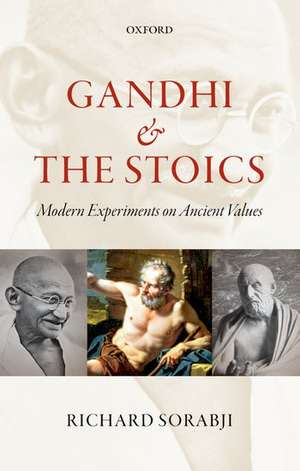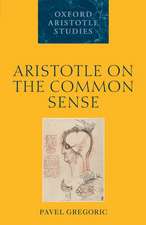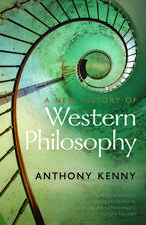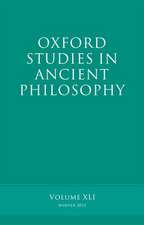Gandhi and the Stoics: Modern Experiments on Ancient Values
Autor Richard Sorabjien Limba Engleză Paperback – 8 dec 2016
| Toate formatele și edițiile | Preț | Express |
|---|---|---|
| Paperback (1) | 164.97 lei 31-37 zile | |
| OUP OXFORD – 8 dec 2016 | 164.97 lei 31-37 zile | |
| Hardback (1) | 299.36 lei 31-37 zile | |
| Oxford University Press – 27 sep 2012 | 299.36 lei 31-37 zile |
Preț: 164.97 lei
Preț vechi: 214.98 lei
-23% Nou
Puncte Express: 247
Preț estimativ în valută:
31.58€ • 34.31$ • 26.54£
31.58€ • 34.31$ • 26.54£
Carte tipărită la comandă
Livrare economică 09-15 aprilie
Preluare comenzi: 021 569.72.76
Specificații
ISBN-13: 9780198708667
ISBN-10: 0198708661
Pagini: 240
Dimensiuni: 142 x 217 x 13 mm
Greutate: 0.29 kg
Editura: OUP OXFORD
Colecția OUP Oxford
Locul publicării:Oxford, United Kingdom
ISBN-10: 0198708661
Pagini: 240
Dimensiuni: 142 x 217 x 13 mm
Greutate: 0.29 kg
Editura: OUP OXFORD
Colecția OUP Oxford
Locul publicării:Oxford, United Kingdom
Recenzii
Richard Sorabji offers us a way to think about Gandhi's nonviolence in a philosophically complex way that also places the Mahatma in a much broader historical canvas, one that includes not only Stocisim and ancient philosophy in general, but also early Christianity and its 'recovery' by the Mahatma's correspondent, Tolstoy. The dialogue that Gandhi and the Stoics creates between these great and otherwise disconnected movements provides an immense pleasure to the reader. Suddenly we are able to exit the narrow compass of Indian nationalism, within which Gandhi tends to be squeezed by academics, and consider his career from a number of fresh perspectives.
By looking at Gandhi from an unusual comparative perspective, Sorabji skillfully highlights several unexplored aspects and perplexities of Gandhi's moral thought. His book makes a truly original contribution to the growing philosophical literature on Gandhi.
By looking at Gandhi from an unusual comparative perspective, Sorabji skillfully highlights several unexplored aspects and perplexities of Gandhi's moral thought. His book makes a truly original contribution to the growing philosophical literature on Gandhi.
Notă biografică
Richard Sorabji is author or editor of over 100 books in the History of Philosophy. Three authored books deal with the nature of the physical universe (Necessity, Cause and Blame; Time, Creation and the Continuum; Matter, Space and Motion). Four deal with Mind and Morals (Animal Minds and Human Morals; Emotion and Peace of Mind; Aristotle on Memory; Self: Individuality, Life and Death). He has written a biography, Opening Doors, of the pioneer lawyer, Cornelia Sorabji. His next book will be Moral Conscience through the Ages. He is Honorary Fellow of Wolfson College, Oxford; Fellow and Emeritus Professor of King's College, London; former Director of the Institute of Classical Studies, London, 1991-6; former President of the Aristotelian Society, 1985-6; and former Gresham Professor of Rhetoric 2000-2003.










